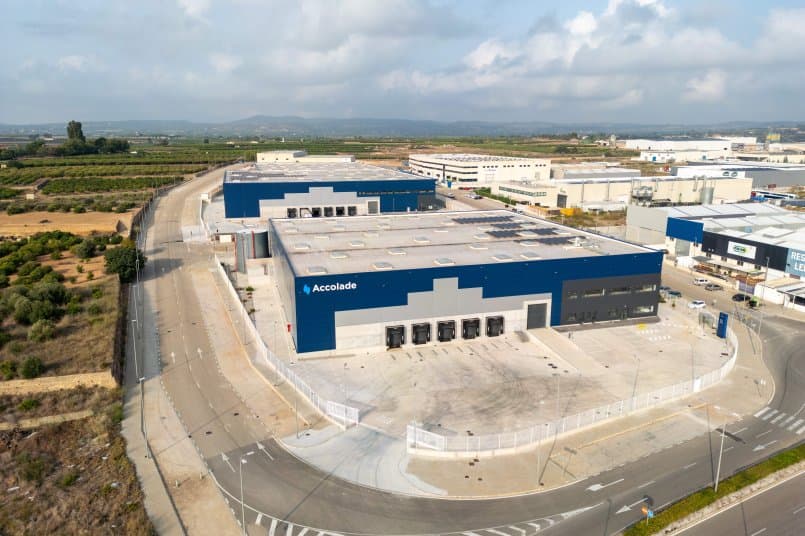Accolade will strengthen in Spain. Worker is cheaper there than here, says Kratina

How do investors who need large industrial areas make decisions today? Increasingly, Spain is their top choice in Europe.
"Here in the Czech Republic, you have to lick the Czech construction law and you have to have the patience of a saint. You have to develop dozens of sites so that units of them get permission," he says in Agenda SZ Byznys co-owner of Accolade Milan Kratina, adding that more and more investors are now heading to Spain.
And that is where the Accolade group is now strengthening. Currently, it already has four parks there with a total leasable area of almost 100,000 sqm with tenants such as Jysk and TXT and will double this area in the near future. In the coming months, it will add two new centres around Valencia and the Murcia area, which will take up another 90,000 sqm.
Spain will thus become the Group's third largest market, after the Czech Republic and Poland.
"We have areas in Valencia where we should grow by another 60,000 metres, but we are also planning other projects - both on our own and with our partners. We have also signed new leases in Murcia. There, it's very much connected to Mercedes, but new players are coming in as well. For example, the Swedish company BoxonTech has leased new meters there," says Milan Kratina.
Accolade's goal, he says, is to have at least 250,000 metres on the market, optimally 500,000. "To play a relevant role there," says Milan Kratina. The company wants to gradually invest higher units of billions of crowns in parks.
Kratina points out that it is not only the speed of permitting that speaks for Spain, but also cheaper labour. On the other hand, the local market has its limitations. "A worker is cheaper in Spain, but if the Czech Republic has something good, it is labour law. In Spain, you cannot fire an employee and severance pay is calculated in years," Kratina explains.
However, park construction is still a profitable business and Kratina says it pays off in most European countries.
The biggest return? Romania
"The legislative process is much simpler everywhere than in the Czech Republic and Slovakia. Poland is probably the winner in this respect, followed by Germany. In terms of returns, they are highest in the Central Eastern markets - Poland, Slovakia, Croatia, Romania and beyond," Kratina says.
While in the Czech Republic the return is five per cent and the payback period is calculated at 20 years, in Poland, thanks to the six per cent, the payback period is already shortened to 16 years. Romania is even better off in terms of returns - there, the investor's money is returned in 12 years. But the length of the permitting process also plays a role.
"In the Czech Republic we have extremes. Prague is extremely complicated, whereas in Ostrava - perhaps thanks to the mentality of Ostravans who want new investments - permits are much faster than in many other cities," says Kratina, citing the example of a Prague brownfield where the company has been trying to get a permit for ten years. He immediately compares it to Spain or Germany, where such a permit takes up to a year. "Even in the Netherlands, which is regarded as a benchmark for ecology and a leader in greenness in Europe, it is many times easier to obtain a building permit than in the Czech Republic."
German companies are heading to the Czech Republic
In terms of tenants, retail and e-commerce are still the strongest, he said. "There is a big demand for large halls. Companies need new premises and are moving out of older ones."
"We see a really big movement of German tenants towards us or Poland. This was not the rule before. They have to do it to increase their efficiency," Kratina adds.
Text Source: Seznam zprávy, Photo: Accolade.





